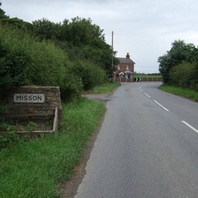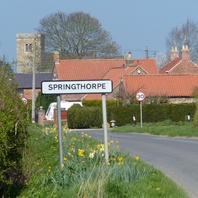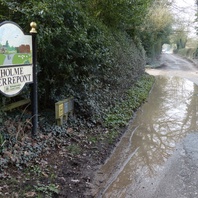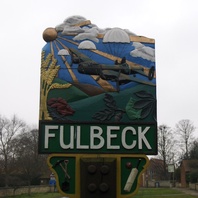
Viking Names
Misson
Misson, in the Bassetlaw Wapentake of Nottinghamshire, is a difficult name. It may be a river name, of which the first element has affinities with Danish mysse, Swedish myssene, or Old Norse mysni ‘a water-plant (?water-arum)’ either as a simplex name or combined with Old Norse á ‘a river’. Alternatively, the name might derive from Old English mos ‘a bog, a swamp; presumably also moss’.
Read More

Viking Names
Springthorpe
Springthorpe, in the Corringham Wapentake of Lincolnshire, is an Anglo-Scandinavian compound from Old English spring ‘a spring, a well, the source of a stream’ and Old Norse þorp ‘a secondary settlement, a dependent outlying farmstead or hamlet’.
Read More

Viking Names
Brumby
The first element of the place-name Brumby, in the Manley Wapentake of Lincolnshire, is likely the Old Norse male personal name Brúni, although it has also been suggested it could be the Old Norse element brunnr ‘a well, spring’. The second element is bý ‘a farmstead, a village’.
Read More

Viking Names
Holme Pierrepont
Holme Pierrepont, in the Bingham Wapentake of Nottinghamshire, comes from Old Norse holmr ‘an island, an inland promontory, raised ground in marsh, a river-meadow’. The name describes its location which is surrounded by watercourses and dikes. The suffix Pierrepont was added at a later date to reflect the family connected to the location. For more information about holmr place-names in the East Midlands, see the Lunchtime Talk Holme from Home? East Midland Place-Names and the Story of Viking Settlement.
Read More

Viking Names
Fulbeck
Fulbeck, in the Loveden Wapentake of Lincolnshire, is an Anglo-Scandinavian hybrid formed from Old English fūl ‘foul, dirty’ and Old Norse bekkr ‘stream, a beck’, which likely replaced Old English broc, ‘brook’ based on earlier forms of the place-name.
Read More

Viking Names
Skirbeck
Skirbeck, in the Skirbeck Wapentake of Lincolnshire, is a Scandinavian compound from Old Norse skírr ‘bright‘ and Old Norse bekkr ‘a stream, a beck’. These elements may have been replaced an Old English name formed from the elements scīr and bece. The stream is now dry, but in the nineteenth century it was asserted that the stream could be traced with little difficulty.
